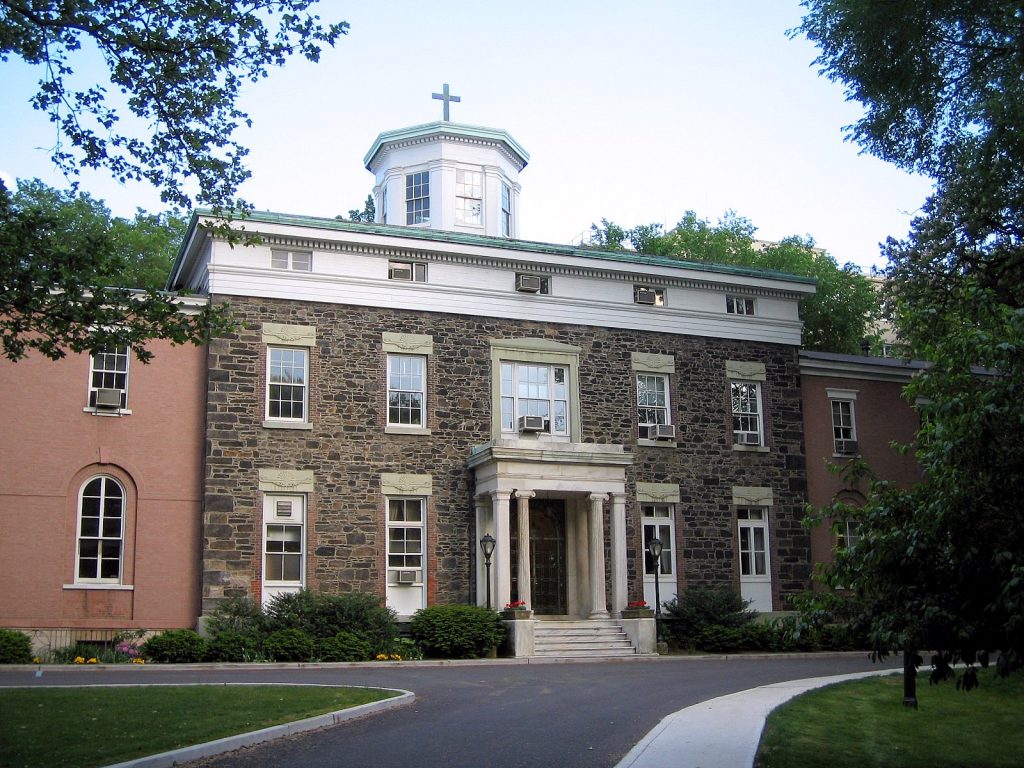
After a five year long battle for recognition, the anti-Zionist nationally-run organization Students for Justice in Palestine lost an appeal to New York’s high court in an effort to overturn Fordham University’s 2015 ban of the organization from its campus.
The Supreme Court of New York’s appellate division agreed with Fordham’s decision “that the proposed club (SJP), which would have been affiliated with a national organization reported to have engaged in disruptive and coercive actions on other campuses, would work against, rather than enhance, respondent’s commitment to open dialogue and mutual learning and understanding, was not ‘without sound basis in reason’ or ‘taken without regard to the facts’, ” wrote The Algemeiner.
While Fordham’s ban was overturned in 2019 by court order, the University appealed in January of 2020 asserting that the SJP group’s participation on campus was not in the “best interests” of their students according to assistant vice president for communications Bob Howe.
Commended by several pro-Israeli and Jewish advocacy groups for the 2015 decision, Keith Eldredge, the dean of students at Fordham’s Lincoln Center campus announced the reasoning behind his reluctance to accept groups “whose sole purpose is advocating political goals of a specific group, and against a specific country, when these goals clearly conflict with and run contrary to the mission and values of the University.”
Fordham’s legal win coincided with an additional blow to SJP on Monday as Tufts University denounced a student government resolution calling for the “demilitarization” of the Tufts University Police Department (TUPD) which placed the blame for American police brutality on Israel and subsequent joint U.S.-Israeli training and initiatives.
Combined with outcry from Jewish organizations across the Tufts campus, the grassroots organization Real Reform at Tufts campaign explained that the referendum is filled with attacks on Israel more than it brings constructive criticism on policing in the U.S. and on-campus policing.
The reform group explained their mission is to bring on-campus reform but also to counter “the referendum’s hateful and dangerous pretense. One that claims Jewish individuals, Jewish organizations, and the Jewish state are to blame for the abuse and killings of black Americans at the hands of police, and the alleged surveillance of black and brown students on Tufts’ campus,” reported the Algemeiner.
Labeled as a “deadly exchange” program, the SJP held a referendum in early 2020 calling for the end of Tuft’s participation in joint police training with Israeli groups. Labeling the initiatives as a “deadly exchange,” the Israel hate group stated: “we all believe that safety on campus does not start with military trained police, especially not those trained in a country that is deeply rooted in apartheid and human-rights abuses.”
Sponsored by the Anti-Defamation League, the bilateral initiatives in question were focused on counter-terrorism strategies and training, including both Israeli and Palestinian police personnel.
The co-president of Tufts Friends of Israel, Max Price, stated that the referendum was “unfortunate,” stating it was based on lies and distracts from real issues facing America.
“In light of the numerous mass-shootings on campuses across the United States, it is clear that our law-enforcement organizations have something to learn about emergency preparedness and counter-terrorism from Israeli and Palestinian experts who are tasked with protecting members of their communities from similar security threats.”
“The ‘Deadly Exchange’ conspiracy theory has been repeatedly discredited, as the training given to US police forces by Israel is confined to senior law enforcement officers and deals with counter-terrorism management, not tactical or hands-on training,” wrote Algemeiner.
- Defense Cooperation Between Israel, Gulf States Possible – Officials
- “Twisted Together” – A Tel Aviv Exhibition Of David Gome’s Self Taught Sculptures And Paintings


